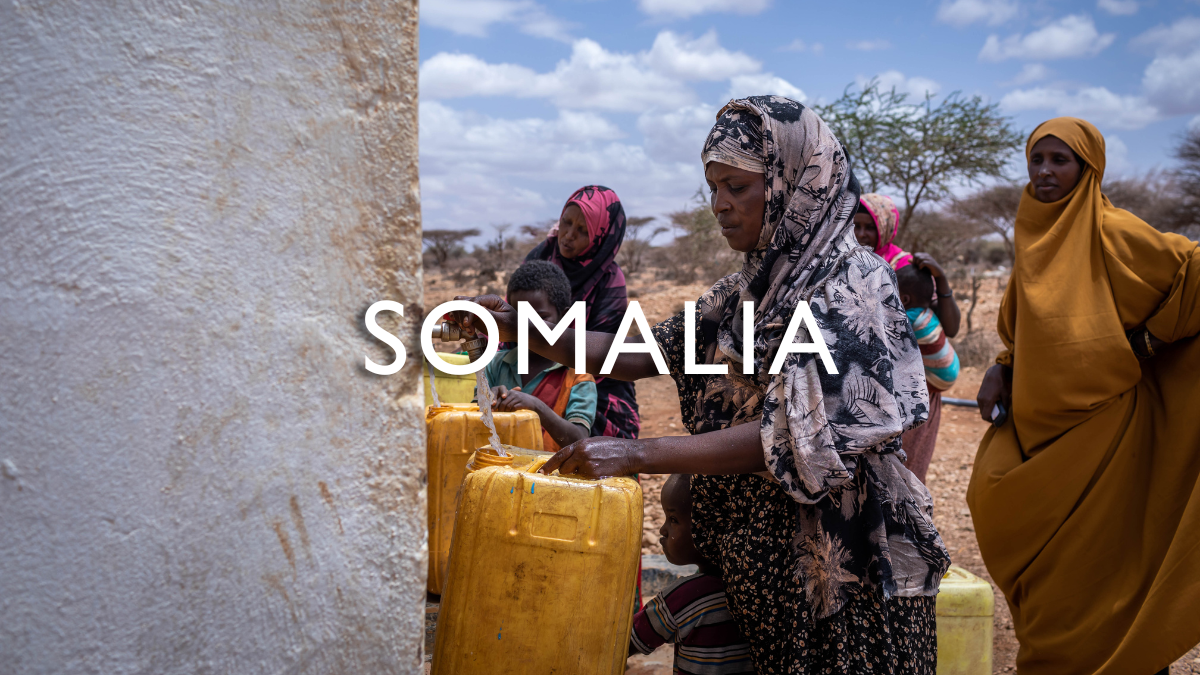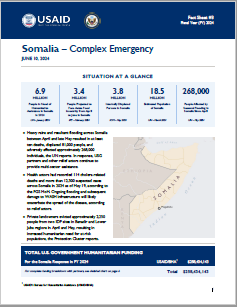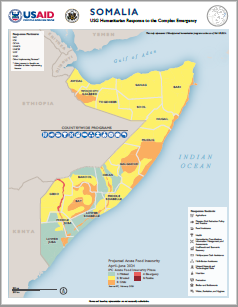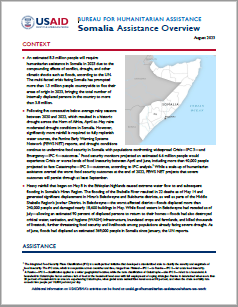
Persistent food insecurity, recurrent climate shocks, and widespread violence have adversely affected Somalia since 1991, driving large-scale displacement and humanitarian needs. The current conflict in Somalia—primarily related to al-Shabaab attacks, military operations, and intercommunal violence—continues to restrict trade and market activities and contribute to displacement and food insecurity. Attacks against civilians and aid workers also disrupt livelihoods and hinder humanitarian access, particularly in areas where al-Shabaab is present. Five consecutive below-average rainy seasons between 2020 and 2022 also resulted in a historic drought across the Horn of Africa and contributed to a significant increase in humanitarian needs in the country.
While rains in 2023 and 2024 have alleviated drought conditions in Somalia, populations across the country are still recovering from its impact and face high levels of food insecurity and malnutrition. Moreover, heavy rainfall and associated flooding have displaced households, destroyed critical infrastructure, contributed to the loss of livelihoods, and increased the spread of diseases.
In response to humanitarian needs in Somalia, USAID partners continue to support populations across the country with emergency food, health, nutrition, protection, shelter, and WASH assistance, as well as with programs aimed at building community resilience to climatic and other shocks.



